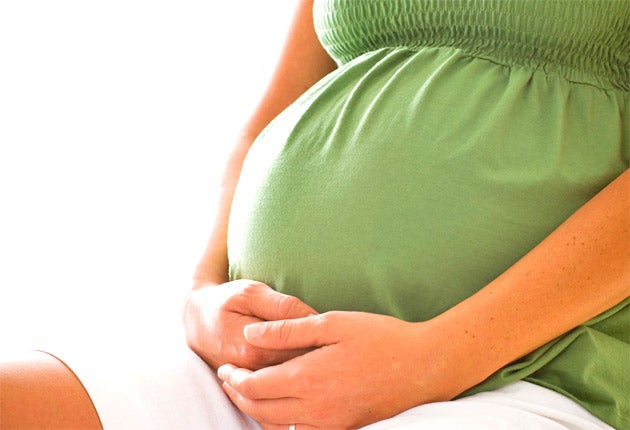Stress reduces the likelihood of getting pregnant, study finds

Your support helps us to tell the story
From reproductive rights to climate change to Big Tech, The Independent is on the ground when the story is developing. Whether it's investigating the financials of Elon Musk's pro-Trump PAC or producing our latest documentary, 'The A Word', which shines a light on the American women fighting for reproductive rights, we know how important it is to parse out the facts from the messaging.
At such a critical moment in US history, we need reporters on the ground. Your donation allows us to keep sending journalists to speak to both sides of the story.
The Independent is trusted by Americans across the entire political spectrum. And unlike many other quality news outlets, we choose not to lock Americans out of our reporting and analysis with paywalls. We believe quality journalism should be available to everyone, paid for by those who can afford it.
Your support makes all the difference.Living life to a tight deadline, juggling appointments and rushing from place to place may harm a woman's chances of becoming pregnant.
In the first study to provide evidence that stress reduces the chances of conception, scientists have found that women with high levels of adrenalin, the "fight or flight" hormone, were less likely to get pregnant.
Results showed that those with the highest levels of adrenalin, measured by the presence of a biological marker in their saliva, were 12 per cent less likely to conceive in the first month than those with the lowest levels.
The difference disappeared after the first month – because the most relaxed women had already got pregnant.
The research was conducted on 274 women aged 18 to 40 by scientists from the University of Oxford working with the National Institutes of Health in the US and is published in the journal Fertility and Sterility.
Celia Pyper, who led the study, said: "The findings support the idea that couples should aim to stay as relaxed as they can about trying for a baby. For some people it might be relevant to look at relaxation techniques, counselling and even approaches like yoga and meditation."
Stress has been thought to affect a couple's chances of conceiving but the belief has been based on anecdote and supposition – until now. Reduction in stress is thought to be behind observations such as the rate of spontaneous conception among "infertile" couples after they have adopted a child. Improved success rates for IVF have also been observed in women who enroll in relaxation classes.
The researchers asked the women to keep a diary recording their menstruation, lifestyle (smoking and drinking) and how often they had sex. On day six of their menstrual cycle they were asked to collect a saliva sample with a cotton wool swab inside their cheek. Two biological markers were measured – cortisol, a hormone linked with chronic stress – and alpha-amylase, an indicator of adrenalin.
To the researchers surprise, only adrenalin levels were linked with reduced conception. Cortisol levels, indicating chronic stress, had no effect.
"We had the hypothesis that it was going to be the chronically stressed women who had these problems. But it was very interesting that there was no link with the cortisol levels," Dr Pyper said.
"Adrenalin comes in surges. Trying to get from A to B faster than is realistic, trying to juggle lots of things and working to tight deadlines may all trigger it."
"If a larger study confirms our findings then introducing simple methods to enable people to reduce their stress levels would be a very good idea. Anything which prevents women becoming subject to investigations for sub-fertility would be in their interests."
Join our commenting forum
Join thought-provoking conversations, follow other Independent readers and see their replies
Comments